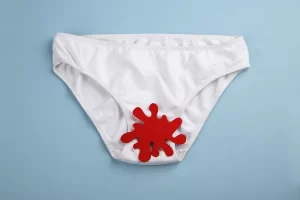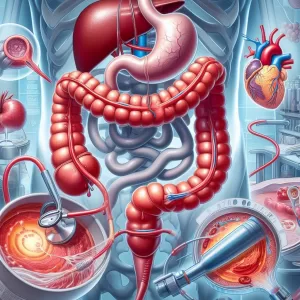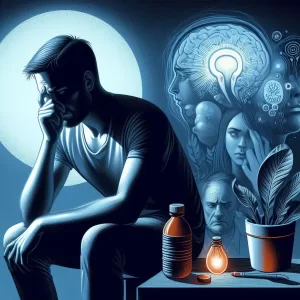Qu'est-ce que le trouble obsessionnel-compulsif ?
[wp_show_posts id=”9230″]
**What is Obsessive-Compulsive Disorder (OCD)?**
**Definition:**
Obsessive-Compulsive Disorder (OCD) is a mental health disorder characterized by recurrent, persistent, and unwanted thoughts, images, or impulses (obsessions) and repetitive, ritualistic behaviors or thoughts (compulsions). These obsessions and compulsions cause significant distress and interfere with daily life.
**Symptoms:**
* **Obsessions:**
* Intrusive, unwanted thoughts, ideas, or images
* Persistent and distressing
* Typically related to harm, contamination, or perfectionism
* **Compulsions:**
* Repetitive behaviors performed in response to obsessions
* Common examples include hand washing, checking, counting, and avoiding certain situations
* Typically serve as a temporary relief from anxiety
**Types of OCD:**
* **Contamination OCD:** Fear of germs or contamination, leading to excessive hand washing or cleaning
* **Harm OCD:** Repetitive thoughts about harming oneself or others, and excessive precautions to prevent it
* **Perfectionism OCD:** Unrealistic standards for performance, leading to excessive checking and redoings
* **Religious/Scrupulosity OCD:** Excessive focus on religious rules or rituals, leading to compulsive prayer or confession
* **Hoarding OCD:** Difficulty discarding physical possessions, often leading to cluttered living spaces
**Causes of OCD:**
The exact causes of OCD are unknown, but contributing factors may include:
* **Brain chemistry (serotonin imbalance):** Low levels of serotonin have been linked to OCD.
* **Genetics:** Family history plays a role in OCD, suggesting a genetic component.
* **Environmental factors:** Certain life events, such as trauma or abuse, may triggers OCD symptoms.
**Treatment:**
* **Cognitive Behavioral Therapy (CBT):** Focuses on challenging negative thoughts and changing compulsive behaviors.
* **Medication:** Antidepressants, such as selective serotonin reuptake inhibitors (SSRIs), can help manage symptoms.
* **Deep Transcranial Magnetic Stimulation (TMS):** A safe and effective treatment that uses magnetic pulses to target specific brain areas.
* **Lifestyle changes:** Regular sleep, healthy diet, and stress reduction techniques can help reduce symptoms.
**Prognosis:**
OCD is a treatable condition with proper management. With therapy and/or medication, most individuals can significantly reduce symptoms and improve their quality of life.
**Complications:**
If left untreated, OCD can lead to:
* Isolation and withdrawal from social activities
* Difficulty maintaining employment or relationships
* Increased anxiety and depression
**Key Points:**
* OCD is a mental health disorder involving intrusive thoughts (obsessions) and ritualistic behaviors (compulsions).
* It affects various aspects of life, including relationships, work, and daily routines.
* Treatment options include psychotherapy (CBT), medication, and lifestyle changes.
* With proper management, most individuals with OCD can lead fulfilling and productive lives.
**What is Obsessive-Compulsive Disorder (OCD)?**
**Definition:**
Obsessive-Compulsive Disorder (OCD) is a mental health disorder characterized by recurrent, persistent, and unwanted thoughts, images, or impulses (obsessions) and repetitive, ritualistic behaviors or thoughts (compulsions). These obsessions and compulsions cause significant distress and interfere with daily life.
**Symptoms:**
* **Obsessions:**
* Intrusive, unwanted thoughts, ideas, or images
* Persistent and distressing
* Typically related to harm, contamination, or perfectionism
* **Compulsions:**
* Repetitive behaviors performed in response to obsessions
* Common examples include hand washing, checking, counting, and avoiding certain situations
* Typically serve as a temporary relief from anxiety
**Types of OCD:**
* **Contamination OCD:** Fear of germs or contamination, leading to excessive hand washing or cleaning
* **Harm OCD:** Repetitive thoughts about harming oneself or others, and excessive precautions to prevent it
* **Perfectionism OCD:** Unrealistic standards for performance, leading to excessive checking and redoings
* **Religious/Scrupulosity OCD:** Excessive focus on religious rules or rituals, leading to compulsive prayer or confession
* **Hoarding OCD:** Difficulty discarding physical possessions, often leading to cluttered living spaces
**Causes of OCD:**
The exact causes of OCD are unknown, but contributing factors may include:
* **Brain chemistry (serotonin imbalance):** Low levels of serotonin have been linked to OCD.
* **Genetics:** Family history plays a role in OCD, suggesting a genetic component.
* **Environmental factors:** Certain life events, such as trauma or abuse, may triggers OCD symptoms.
**Treatment:**
* **Cognitive Behavioral Therapy (CBT):** Focuses on challenging negative thoughts and changing compulsive behaviors.
* **Medication:** Antidepressants, such as selective serotonin reuptake inhibitors (SSRIs), can help manage symptoms.
* **Deep Transcranial Magnetic Stimulation (TMS):** A safe and effective treatment that uses magnetic pulses to target specific brain areas.
* **Lifestyle changes:** Regular sleep, healthy diet, and stress reduction techniques can help reduce symptoms.
**Prognosis:**
OCD is a treatable condition with proper management. With therapy and/or medication, most individuals can significantly reduce symptoms and improve their quality of life.
**Complications:**
If left untreated, OCD can lead to:
* Isolation and withdrawal from social activities
* Difficulty maintaining employment or relationships
* Increased anxiety and depression
**Key Points:**
* OCD is a mental health disorder involving intrusive thoughts (obsessions) and ritualistic behaviors (compulsions).
* It affects various aspects of life, including relationships, work, and daily routines.
* Treatment options include psychotherapy (CBT), medication, and lifestyle changes.
* With proper management, most individuals with OCD can lead fulfilling and productive lives.
2 commentaires
Laisser un commentaire
Articles populaires








What is Obsessive-Compulsive Disorder
What is Obsessive-Compulsive Disorder